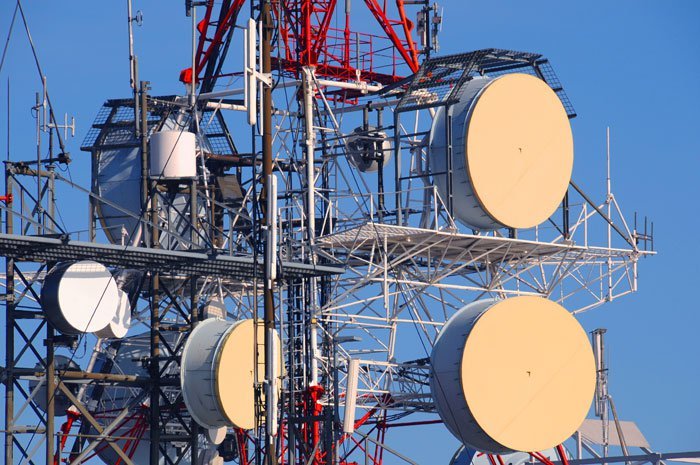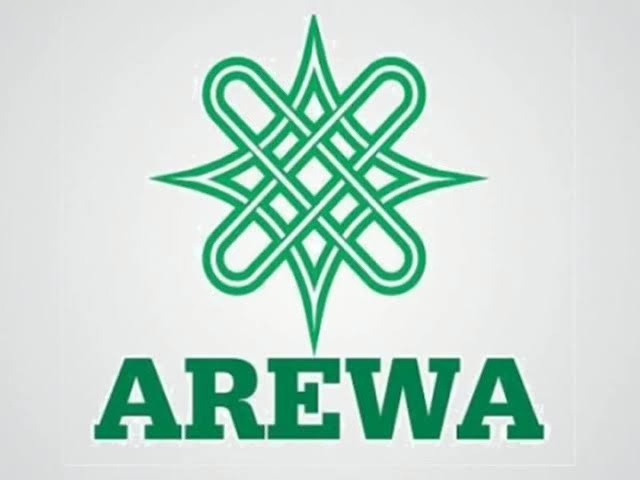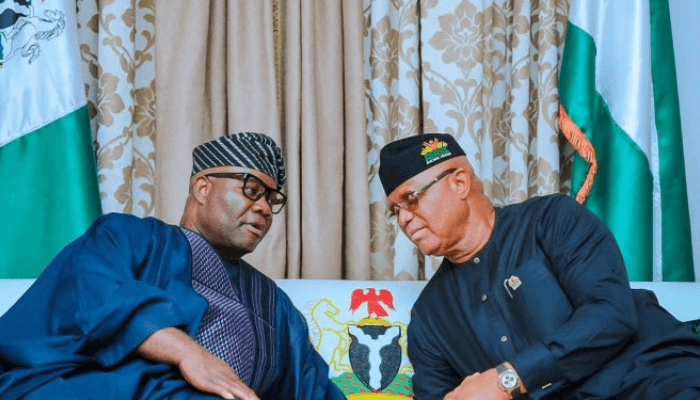* Say Telecoms services are available in all the local governments
The provisions of Section 52(3), as adopted by the Senate, implies, if signed into law, the NCC – the telecommunications sector regulator – would have to convince the National Assembly before the lawmakers could approve electronic transmission of results in future elections in Nigeria.
By further implication, it also means that should the provision come into law, it was the National Assembly, rather than Nigerians, that would determine if election results would be transmitted electronically. And going by the APC’s majority in the federal legislature and the party’s leadership’s opposition to the moves to include electronic transmission of election results in the Electoral Act, it is highly unlikely that the National Assembly would approve the arrangement.
The APC senators and others who oppose the move raised concerns over the capacity of the telecommunications sector to guarantee electronic transmission of results.
However, representatives of telecoms operators, including captains of industry associations, have insisted that the current level of infrastructure and internet network coverage in Nigeria can guarantee the transmission of election results through electronic means.
Chairman of the Association of Licensed Telecom Operators of Nigeria (ALTON) Gbenga Adebayo told the ICIR that telecoms operators in Nigeria had the capacity to transmit election results electronically in all parts of the country.
Adebayo noted that the telcos were ready to deploy their services for election coverage once NCC gave them the go-ahead.
“Yes, with what we have today, the telecommunications sector can support INEC and the country in whatever they want to do. Telecoms services are available in all the local governments of the country, so that is not a problem at all.
“With what we have, the industry can support the electoral commission and the government in this regard. The NCC is fully prepared to guarantee electronic transmission of results. In terms of capacity, we have more than enough capacity to ensure electronic transmission of results across the country.
“The integrity of the service is guaranteed, the quality of service is assured and I am sure once the NCC gets the right communication from government, it will tell the industry what next to do and we are good to go. There are no concerns and no worries at all. The industry is prepared,” Adebayo said.
The 3G network, which is the minimum requirement for data services, is available in most towns, villages and communities across Nigeria, while the 4G network is obtainable in most cities.
“We have 3G and 4G networks in most areas and once you have 3G network you can do data services so I think we are more or less covered.”
Adebayo added that there would be no questions concerning the integrity and credibility of the election results transmitted through the infrastructure of the telecoms operators.
“The telecoms industry will not be a party in the electoral system, it will only be a vehicle for electronic transmission of results. The NCC and the sector have no role to play in the outcome of the electoral process, they can’t determine the results,” he stressed.
Also speaking with The ICIR, the immediate past president of the Association of Telecoms Companies of Nigeria (ATCON) Olusola Teniola noted that some of the members of the National Assembly who were opposing the inclusion of electronic transmission of results in the Electoral Act were giving excuses with unfounded concerns over the reliability of the telecoms sector.
But he stressed that NCC was very much aware of the reliability and sustenance of telecoms infrastructure which he said represented more than ‘$16 billion worth of investment by at least one company in the industry and collectively $72 billion dollars.’
Dismissing claims that available capacity in the sector could not guarantee reliable electronic transmission of results, Teniola said, “We (telecoms operators) can only state that the political arena should feel comfortable that the technology that would be adopted for electronic transmission of results will actually work and will not be subjected to failure.”
Noting that there were suggestions that, maybe, during collation and transmission of results all the telecoms companies could go offline, he said, “That has never happened in Nigeria. That statement is just scaremongering and is not backed by any empirical evidence.”
“I think we should be thinking of ways of ensuring that technology benefits the people through the process of electronic voting because all over the world, it has demonstrated transparency and delivered results in a timely manner,” he added.
The National Association of Telecoms Subscribers (NATS), an umbrella body of consumers of telecommunications services in Nigeria, also faulted the APC senators’ claim that the level of telecoms services and infrastructure in the country could not be relied upon for electronic transmission of election results.
Chairman of NATS Deolu Ogunbanjo, in an interview with The ICIR, noted that should the NCC eventually be given the responsibility of determining whether the telecommunications network coverage in the country was adequate for electronic transmission of election results when the amended Electoral Act came into law, the commission would have no reasons to advise against the transmission of results through electronic means.
“NCC cannot tell us that electronic voting or transmission of election results through electronic means cannot be done at this stage when broadband penetration is deep and high. And NCC is proud about this. They are deepening broadband penetration every day,” Ogunbanjo said.
He further faulted the amended Section 52(3) passed by the Senate, noting that the clause brought NCC into the electoral process and could thereby politicise the commission.
“It is INEC that is given the responsibility through the Electoral Act to conduct elections. The INEC will now liaise with the NCC to ensure that electronic voting or electronic collation and transmission of results is possible.”
Data from the NCC show that broadband penetration in Nigeria, which refers to the amount of the internet access market that high speed or broadband internet has captured, increased from 21.21 per cent in April 2017 to 40.66 per cent in April 2021.
NCC data show that in April 2021, 77.605 million Nigerians were connected to the internet, up from 40.481 million in April 2017.
However, Nigeria has recorded a decline in broadband penetration in recent months following the Nigerian government’s recent policy of linking the National Identity Number (NIN) with SIM cards. The Nigerian government had announced that it hoped to achieve 90 per cent broadband penetration in the country by 2023.
The reported claim by the APC senators that the NCC said only 43 per cent of Nigeria had internet network could not be verified, but there are indications that the lawmakers were referring to the level of broadband penetration in the country.
However, chairman of Association of Licensed Telecom Operators of Nigeria, Adebayo, noted that, currently, there were no infrastructural or internet network coverage challenges that could prevent electronic transmission of election results in Nigeria as telecoms services were available in all the local governments across the country.











Leave a Reply